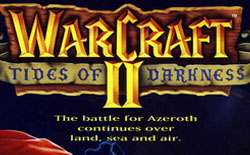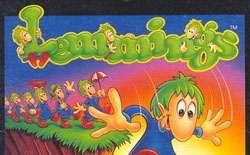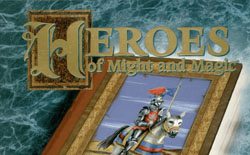 |
|
StrategyHere is a sampling of different Strategy games available for DOS. Much more can be found on the Links page.
Sid Meier's Civilization is a turn-based "4X"-type strategy video game created by Sid Meier and Bruce Shelley for MicroProse in 1991. The game's objective is to "Build an empire to stand the test of time": it begins in 4000 BC and the players attempt to expand and develop their empires through the ages from the ancient era until modern and near-future times. It is also known simply as Civilization, Civilization I, or abbreviated to Civ or Civ I. Civilization was originally developed for DOS running on a PC. It has undergone numerous revisions for various platforms (including Windows, Macintosh, Amiga, Atari ST, PlayStation, N-Gage and Super Nintendo) and now exists in several versions. A multiplayer remake, Sid Meier's CivNet was released for the PC in 1995. The N-Gage version was the last game released for the system in North America.
SimCity 2000 (SC2K) is a city-building simulation video game and the second installment in the SimCity series. SimCity 2000 was first released by Maxis in 1994 for computers running Apple Macintosh Operating System. It was later released on the Amiga, DOS & Microsoft Windows, followed by a release for OS/2. In 1995, SimCity 2000 won "Best Military or Strategy Computer Game" Origins Award.
Warcraft II: Tides of Darkness is a fantasy-themed real-time strategy (RTS) game published by Blizzard Entertainment and first released for DOS in 1995 and for Mac OS in 1996. The main game, Warcraft II: Tides of Darkness, earned enthusiastic reviews, won most of the major PC gaming awards in 1996, and sold over 2 million copies. Later in 1996 Blizzard released an expansion pack Warcraft II: Beyond the Dark Portal for DOS and Mac OS, and a compilation Warcraft II: The Dark Saga for the Sony PlayStation and Sega Saturn. The Battle.net Edition, released in 1999, provided Blizzard's online gaming service, Battle.net, and replaced the MS-DOS version with a Windows one. Players must collect resources, and produce buildings and units in order to defeat an opponent in combat on the ground, in the air and in some maps at sea. The more advanced combat units are produced at the same buildings as the basic units but also need the assistance of other buildings, or must be produced at buildings that have prerequisite buildings. The majority of the main screen shows the part of the territory on which the player is currently operating, and the minimap can select another location to appear in the larger display. The fog of war completely hides all territory which the player's has not explored, and shows only terrain but hides opponents' units and buildings if none of the player's units are present.
Lemmings is a puzzle-platformer video game originally developed by DMA Design and published by Psygnosis for the Amiga in 1991. The basic objective of the game is to guide a group of humanoid lemmings through a number of obstacles to a designated exit. In order to save the required number of lemmings to win, one must determine how to assign a limited number of eight different skills to specific lemmings that allow the selected lemming to alter the landscape, to affect the behavior of other lemmings, or to clear obstacles in order to create a safe passage for the rest of the lemmings.
Heroes of Might and Magic is a series of video games originally created and developed by Jon Van Caneghem through New World Computing. As part of the Might and Magic franchise, the series changed ownership when NWC was acquired by 3DO and again when 3DO closed down and sold the rights to Ubisoft. The games feature turn-based, fantasy-themed conflicts in which players control armies of mythical creatures. The series began in 1995 with the release of the first title. A sixth installment, Might & Magic Heroes VI, was released on October 13, 2011. New World Computing closed after the production of Heroes of Might and Magic IV, and since then the rights to the franchise have been owned by Ubisoft. Nival Interactive developed the first game in the series since the changeover, Heroes of Might and Magic V. Black Hole Entertainment developed its sequel Might & Magic Heroes VI, but Limbic Entertainment developed later patches and the DLC, as well as Might & Magic Heroes VII. Virtuos developed the Shades of Darkness standalone expansion for Heroes VI. --------------------------------------------------------------------- |




